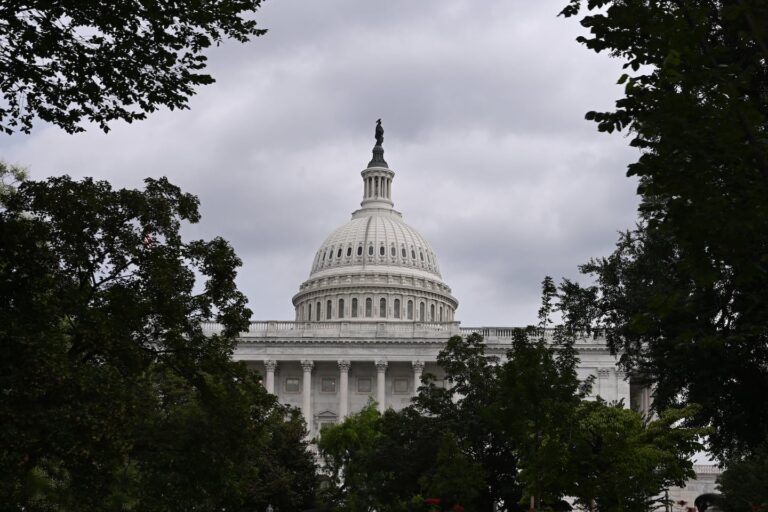Hospitals and health systems are gearing up to talk more with their members of Congress about the impacts of the subsidies running out. Insurers have made the issue a top priority for inclusion in a funding package that must pass by the end of the month to avoid a government shutdown. And an expansive coalition of health sector heavyweights, Keep Americans Covered, is focusing its efforts on this month as well.
“We think September in particular is a really important month,” Brendan Buck, who has led communications for Keep Americans Covered, told STAT. “We’re pushing hard to get an extension of the tax credit included in whatever vehicle they use to fund the government. We’re all building towards that.”
There’s another reason that companies are focused on September: Enrollment for 2026 health plans begins in November, and consumers will face sticker shock as they review plans if the subsidies don’t get renewed.
But many conservatives in Congress aren’t convinced that they should shell out an estimated $335 billion over the next decade to make the enhanced subsidies permanent — and industry leaders have yet to see a detailed plan of how the subsidies would be included in a funding package. Though a bill to extend the subsidies, the Health Care Affordability Act, has been introduced, only Democrats have cosponsored the legislation.
Congress’s failure to act could leave millions of Americans who get their health insurance through the marketplace created by the Affordable Care Act with higher premiums or without insurance. The nonpartisan Congressional Budget Office estimated earlier this year that 4.2 million Americans would lose insurance should the subsidies not be renewed.
That level of coverage losses would be a significant hit to health insurers and providers, just after Congress passed historic health spending cuts in its tax-cut package known as the One Big Beautiful Bill earlier this summer.
But the move could offer substantial federal savings and a win for conservatives set on reining in government health spending, especially increases made during the COVID-19 pandemic. The enhanced subsidies were originally passed in a Covid relief package, then extended through the Inflation Reduction Act, championed by Democrats.
The decision is sure to have political ramifications for Republicans in control of Congress, especially as they’re being slammed for their earlier cuts, which included nearly $1 trillion in Medicaid funding. The health care industry is arguing that voters will see the impact of reduced subsidies immediately — well before the midterms — making the issue important to their votes.
“The sticker shock is going to be enormous,” said David Merritt, senior vice president for external affairs at the Blue Cross Blue Shield Association. “Consumers are going to start receiving these renewal notices in a matter of weeks. The urgency is to act now. That’s what September is shaping up for.”
The coming Medicaid cuts increase providers’ and payers’ desire to secure the ACA subsidies.
Some 10 million people are expected to lose their health insurance over the next decade because of Republicans’ tax-cut package — and many could have more trouble paying for marketplace insurance without government subsidies, presenting compounding problems, said Marty Bonick, president and CEO of Ardent Health, a for-profit health system with 30 hospitals and scores of clinics.
“It’s going to result in a lack of access to coverage for low-income populations,” he said.
But some lawmakers aren’t convinced.
“Don’t let the Insurance Industry cry foul over the expiring Premium Tax Credits,” Representative Greg Murphy, Republican of North Carolina, said in a post on X earlier last week. “They say premiums will go up but that is only to protect their record profits.”
The conservative Paragon Health Institute, which proved to be influential in guiding congressional Republicans’ health policy agenda earlier this year, released a paper Wednesday arguing the subsidies were meant to be temporary and have resulted in more wasteful government spending. Similar claims from the group last month were touted by the Wall Street Journal’s editorial board — and dismissed by the insurance industry.
Some Democratically aligned groups have already begun laying the groundwork to blame future increases in premiums on Republicans. Protect Our Care, one such group, has launched its Premium Disaster Watch project, which it plans to grow this month, a spokesperson said in an email.
But other groups remain intent on a less adversarial approach.
Merritt said health groups are arguing this issue is a pocketbook issue for Americans, one that is “consistent with the overall worry that folks have had on the economy.”
“I’m hopeful that that argument can win the day, because the administration has made it clear that economic growth and economic health is an absolute priority,” he said. “We see this as complementary to that push.”


